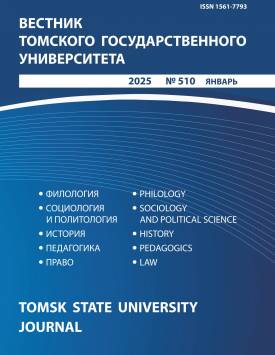The technology of building a psychodiagnostic space in the university's digital educational environment
The article substantiates the relevance of creating modern diagnostic tools, the use of which makes it possible to provide diagnostic information for both individual and group or typological affiliation of students of a modern university. The tasks of developing a technology for building a psychodiagnostic space in the university's digital educational environment using two types of psychodiagnostic markers are described. A special feature of the proposed set of measuring tools is the presence of a cognitive tests set in the form of a dynamic stimulus environment. In this capacity, a battery of tests is proposed, the scales of which assess personality traits, intelligence, and cognitive abilities. Cognitive tests "speed-accuracy compromise" and "mental rotation" were also used. All tasks were completed in LMS Moodle as part of one of the educational courses, as its integral part aimed at meeting the students' needs for self-knowledge. This approach made it possible to distribute the measurements over time in such a way as to avoid the effects of reducing motivation for psychodiagnostic research. The empirical data of the study are the result of the psychological diagnosis of 2,090 first-year students of Tomsk State University in all areas of training. A number of diagnostic statements have been made reflecting the structure of factors potentially responsible for the academic and professional success of students. Such factors include the specifics of motivational, personal, and behavioral traits, cognitive intelligence, and organization. There are separate groups of first-year students within the faculties/institutes, which differ significantly from each other, and individual groups of students from different faculties are more homogeneous in some psychological characteristics than different groups of the same faculty/institute. The information obtained about the cognitive characteristics of students and the revealed specifics of the differences reflect the professional preferences of first-year students, their ideas about the direction of their chosen training. The approbation of the developed technology made it possible to make analytical generalizations that can become the subject of discussion in the university's educational communities about the possibilities offered by the technologization of building a psychodiagnostic space in a digital educational environment. The authors declare no conflicts of interests.
Keywords
psychodiagnostic space, educational digital environment, cognitive tests, cognitive features, diagnostic toolsAuthors
| Name | Organization | |
| Balanev Dmitry Yu. | National Research Tomsk State University | balanevd@gmail.com |
| Shamakov Viktor A. | National Research Tomsk State University | kabrin@list.ru |
References

The technology of building a psychodiagnostic space in the university's digital educational environment | Vestnik Tomskogo gosudarstvennogo universiteta – Tomsk State University Journal. 2025. № 510. DOI: 10.17223/15617793/510/16
